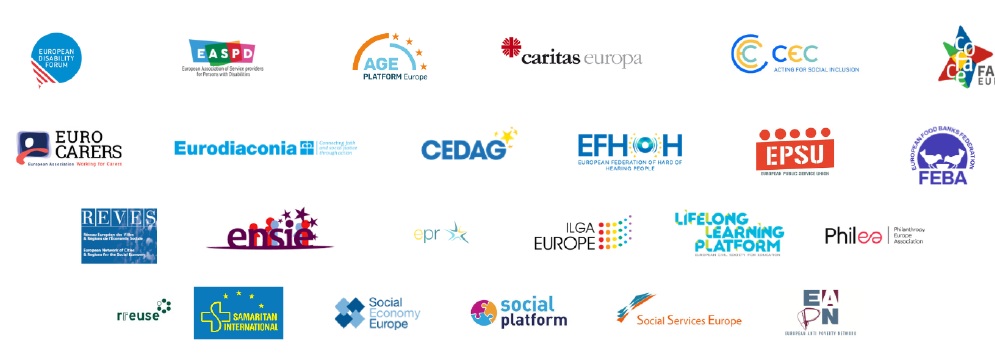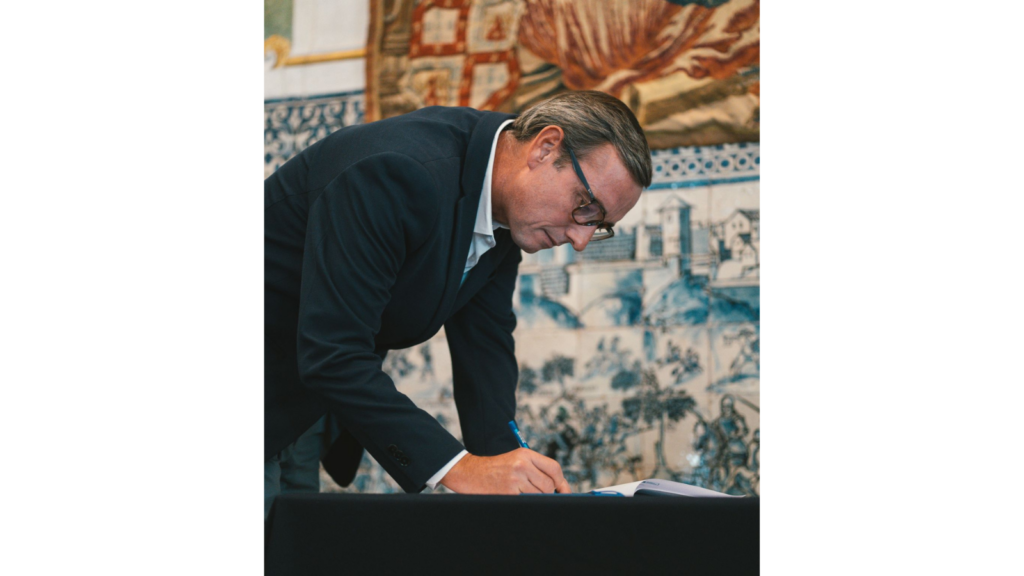It has been a year since the Council of Europe condemned the French state for violating the rights of people with disabilities and their families. COFACE members Unapei and APF France Handicap along with other NGOs are urgently reminding the French government of their obligations to protect people with disabilities and their families.
Since being denounced by the Council of Europe’s Social Rights Committee, resulting from a complaint by Unapei and other organisations, the behaviour of the French state has been “shameful”. Services are scarce, as as is architectural and transport accessibility. Education is consistently denied, sustainable support to families is absent, and socioeconomic injustices are evident.
This is why Unapei, APF France Handicap and others are newly demanding for the requests made at the National Disability Conference to be translated into concrete action.
Over the last year there have been no changes in terms of support, accessibility, health, education, resources and adjustments or social protection.
The group of organisations have shared the following statement about these findings:
“The findings we are sharing today are based on the day-to-day lives of people with disabilities and their families. A year ago, we hoped our action with the Council of Europe would bring an alert to the highest levels of the government. In fact, despite the urgency of the situation, our warnings have gone neglected! How long will people with disabilities and their families be forced to make up for the State’s shortcomings, and thus to accept deteriorating living conditions and as a consequence exclusion from society?”
Support: Thousands of people with disabilities still and sustainably remain without any solution
“For years we have been calling for individual support solutions for each disabled person, based on their specific needs and expectations. Every disabled person should have the right to choose how, by whom and where to get any support. Despite the urgency of the situation, we have to face odd and put-up approaches, including bits and pieces stuck together. When will we be able to propose satisfactory answers to all questions expressed by all these people and their families, who daily mitigate the consequences of the State’s shortcomings?” according to Luc Gateau, President of Unapei.
The disability organisations also deplore the lack of an Observatory of Needs to ensure that people with disabilities do really receive a true response as close as possible to their needs and expectations.
- In the Yvelines district only, no fewer than 5,987 people are filing and waiting to be medically and socially taken charge of, including 1,769 children and youngsters, as well as 4,218 adults[1]!
- At the start of the 2023 school year, more than 51% of the children supported by the Unapei network did not receive any scholarship.[2]
Meanwhile, less than one in two French citizens shows a real interest for any kind of work in the medical and social assistance given the low level of salaries (40%) and difficult working conditions (40%): two main reasons why French people are reluctant towards such vital occupations [3].
“The impact on our lives, my son’s and mine, is immense. Today, if my son has no access to the care and support he needs, most particularly in psychiatry, , he can’t be independent in his own home or in his dealings with the authorities” – Anne, mother of a young person living with mental health problems (schizophrenia).
“The only thing that keeps me awake at night is my daughter’s future. Over the years, parents are about to lose their own capacity. So you start to wonder: will I be able to provide support? – Sorya and Mohammed, parents of an intellectually disabled child.
Accessibility: France still remains inaccessible to people with disabilities
“The ‘deafening’ silence of the public authorities on the principle of universal accessibility, which was clearly enshrined in both 1975 and 2005 laws, is totally intolerable. Inaccessibility is a segregation kind, which does not say its name, a true social apartheid that people with disabilities experience on a daily basis. What more does the French government want and for to commit finally to a real disability policy re-foundation in France? Next year, the 11th February 2005 law will meet its 20th anniversary, which in fact should be marked with a black stone” says Pascale Ribes, APF France handicap President.
Almost 50 years after the first law on accessibility passed in 1975, these shortcomings are still evident in everyday life. Buildings, all kinds of public transports, information and administrative procedures are still and too often inaccessible. The announcements made at the National Conference on Disability, particularly the 1.5 billion euros dedicated to accessibility, now appear not only uncertain because of budget cuts, but, also, highly insufficient.
- 9 out of 10 people with disabilities find it difficult to get around easily;
- 74% of the people with disabilities are dissatisfied with road accessibility[4] .
Health: People with disabilities and women in particular, are over-exposed to difficulties in accessing healthcare.
“Refusal of care by professionals, staggering waiting times for appointments, refusal of care on financial grounds, lack of beds, trivialized recourse to coercive practices or deterioration in care… In France, difficulties in access to care and to medical and paramedical professionals are multiplying, so that people with disabilities are over-exposed to them. When everybody knows yet that the entire healthcare system should be thoroughly accessible” – says Marie-Jeanne Richard, President of UNAFAM.
The disability organisations are renewing their call for health care and prevention services to be adapted and accessible to all disabilities, for health professionals to beneficiate training programs, and for real improvements in all care coordination systems.
- 83% of people say they experienced problems in caring for their relative, 46% of which were significant or even extreme. This major difficulty is more prominent for respondents under 64 years of age (onset of illness).
- Almost 2/3 of the respondents say that access to a psychiatrist or psychologist is difficult for their relative[5].
Carers: Relatives of people with disabilities are still palliating the State’s shortcomings
“Taking on 1001 jobs, juggling work and family life, accompanying our child everywhere and every day. We are all familiar with this kind of daily routine. Many of us even have a good knowledge and experience of it. Yet it is still too often ignored by society, and we still don’t have a sufficient access to support” – Luc Gateau, President of Unapei.
- 91% of parents make it their life’s priority to ensure their child has support.
- 95% of parents are concerned about their child’s future when they are no longer there or no longer able to support him or her.
- 41% of working parents work part-time.[6]
“I did not have the right to go out to work. I went back to work when I was 40. However, it was not my job. I had to retrain so that I could choose my working hours and so that my daughter could be present at my place of work. I chose my employers accordingly” – Christine, aged 75, mother of a disabled adult.
Unapei, APF France Handicap and others are now looking towards the European elections to push for answers on why the French state has still failed to meet its obligations to people with disabilities.
Read the full press release here
[1] Source Unafam
[2] Unapei survey of 2103 children supported by the associations in its network (6 regions), 2023
[3] Opinion Waysurvey for Unapei, February 2024
[4] IFOP poll for APF France handicap, 2020
[5] Two self-administered online questionnaires sent to all Unafam members from 30 May to 25 June 2023 – 4363 respondents
[6] Survey carried out by Unapei and Planète-Publique among 4,000 parents (intellectual disability, multiple disabilities, psychiatric disability), 2023





